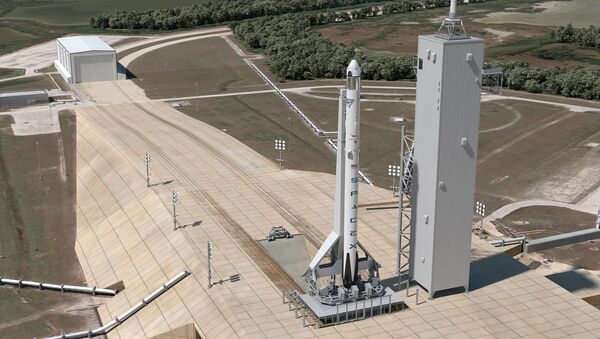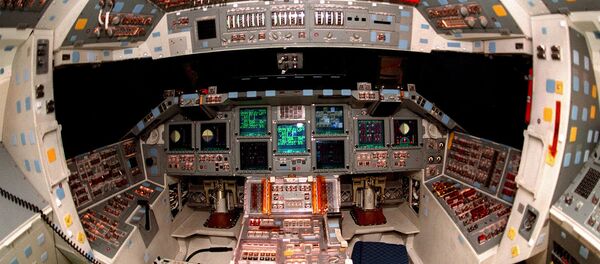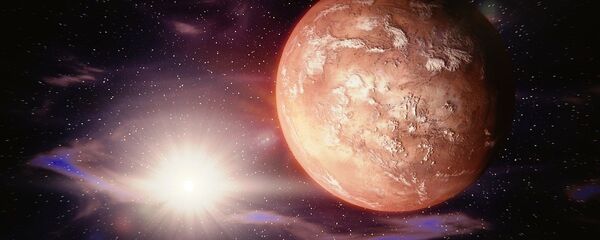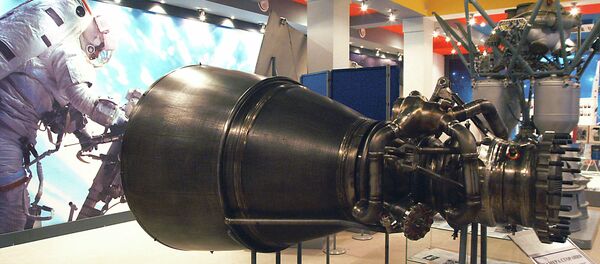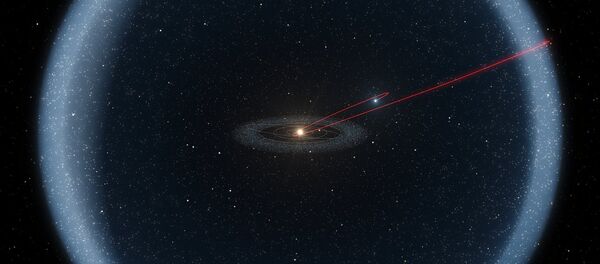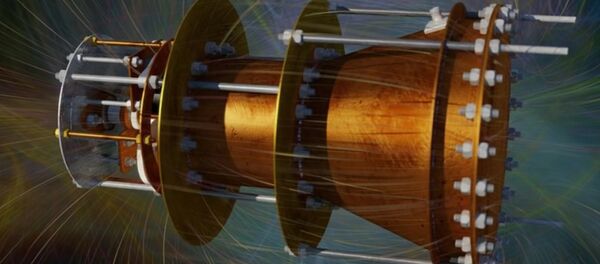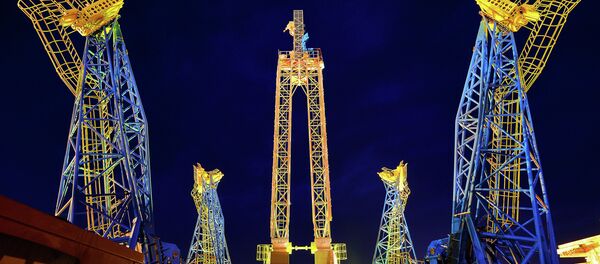Tech billionaire Elon Musk is known for being a bit eccentric. Last year, he blew up the internet when he told a Bloomberg reporter that he would like to die on Mars, but that his family "fears Russia will assassinate me [first]."
Late last month, SpaceX, Musk's aerospace company, tweeted that it has ambitious plans to send its Dragon multipurpose spacecraft to Mars on a technology demonstration mission "as soon as 2018."
Planning to send Dragon to Mars as soon as 2018. Red Dragons will inform overall Mars architecture, details to come pic.twitter.com/u4nbVUNCpA
— SpaceX (@SpaceX) 27 апреля 2016 г.
Commenting on SpaceX's announcement, Svobodnaya Pressa columnist Aleksandr Sitnikov suggests that it may have actually been "Musk's way of responding to the news on the materialization of the promising Russian spacecraft, the Federatsiya ('Federation')."
"Although America is also developing two other space projects – [Sierra Nevada Corporation's] Dream Chaser and [NASA's] Orion, the real competition for the global commercial space market in the third decade of the 21st century seems to have unfolded between SpaceX and Energia [the Russian rocket and space corporation]," the military analyst explained.
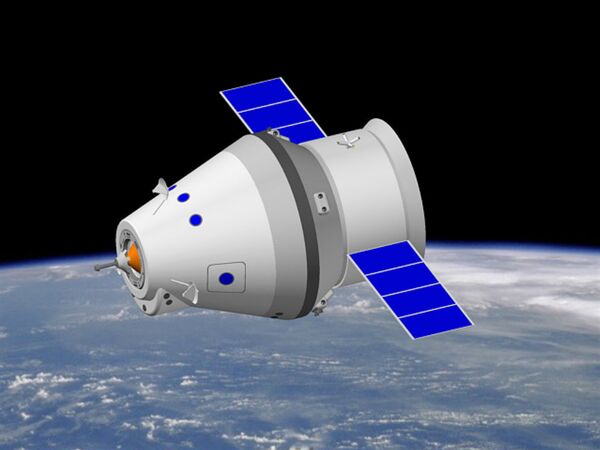
"All the prerequisites exist for such a competition," Sitnikov argues.
"For starters, US experts are convinced that NASA has placed its bets on the Dragon program. For example, this has been reported by Jeff Foust, the publisher of The Space Review and a senior contributor to SpaceNews."
The Space Review, Sitnikov adds, has recently reported "that the US National Aeronautics and Space Administration have given Musk's project the status of 'mission suitability.'"
Just as importantly, "SpaceX also enjoys the lobbying support of American foreign policy hawks, led by John McCain, who repeats at every opportunity the need to abandon the Russian RD-180 rocket engine in favor of the Falcon 9." (The Pentagon is presently dependent on the RD-180 for launching satellites, including key military satellites, into orbit.)
Last month, The Moscow Times columnist Matthew Bodner began his article 'Russia vs. Elon Musk: US Startup Threatens Moscow's Role in Space' with Musk's famed line about his fear of Russian assassins.
"Musk can perhaps be forgiven for feeling this way," Bodner noted. "On April 9, just days before Russians celebrated the 55th anniversary of Yuri Gagarin's historic flight into space, SpaceX successfully landed one of its rockets on a barge in the Atlantic Ocean. It was a clear demonstration that Musk is on the verge of radically transforming the business of space exploration, an industry traditionally dominated by Russia."
Onboard view of landing in high winds pic.twitter.com/FedRzjYYyQ
— SpaceX (@SpaceX) 9 апреля 2016 г.
Roscosmos, The Moscow Times journalist added, is set to take further losses when SpaceX begins to fly NASA astronauts to the ISS. Here he was referring to Musk's promises to undercut the Roscosmos rate of $70 million 'per person' by over $50 million to about $20 million a seat onboard the Dragon. If SpaceX's plans become a reality, Russia could eventually lose about $500 million per year, he calculated.
"But is this really the case?" Sitnikov asks. "Let's start with NASA's issues with SpaceX. The agency insists that the Dragon be able to independently dock with the ISS, instead of relying on the station's robotic arm, as it does today. In addition, the agency is dissatisfied with the prohibitively high costs which have arisen as a result of 'two separate vehicles with separate production lines'."
SpaceX, Sitnikov notes, still also needs to work out kinks in its vehicles. This, he says, is evident by the March 2013 incident when the Dragon went out of control for several hours and was nearly lost after reaching orbit due to a faulty thruster valve.
"And so," the journalist summarizes: "the price tag for the launch of the Falcon 9 amounts to $133 million, while Roscosmos, according to American sources, offers clients launches using the Proton-M for $90 million a pop, and $65 million for a series (according to some sources, it's $50 million). At the same time, the Russian carrier is capable of taking satellites with a weight of up to 6.7 tons into geosynchronous orbit, compared to 5.3 tons for the Falcon-9."
"In other words, the real competition will begin when Elon Musk reduces the price of his ships' mission to at least $60 millions. It is indicative that the head of SpaceX has put these objectives in front of him. But in the meantime, his business relies solely on US protectionism, which showers him in the gold of the US treasury."
"But back to the 'competitive advantage' of the Dragon project to the Russian offers: SpaceX spokesman Garret Reisman has admitted that NASA considers the delivery of seven astronauts to the ISS to be excessive, and that the agency is insisting on a four-person capacity in the Dragon V2. This decision has not been finalized. There are also views that a three-person crew configuration is optimal. In any case, this means that the price tag of $20 million per person will not be reached. On the whole, the space agency also finds it more expedient to deliver cargo together with a small crew."
"As far as spacecraft reusability is concerned," Sitnikov writes, "here too NASA has introduced stringent requirements, or rather an insistence, on the continuation of one-time-use missions. The agency believes that each launch needs to use a new launch vehicle and a new ship. The multi-use application which Musk considers to be his edge, is designed for other clients, if, of course, they can be found."
"Finally, [NASA] has, in fact, rejected landings using rocket boosters, in favor of the parachute system, together with a speed brake used in the final seconds of landing. Reisman's report says as much – that the Dragon will have roughly the same landing system as the perspective Russian Federatsiya."
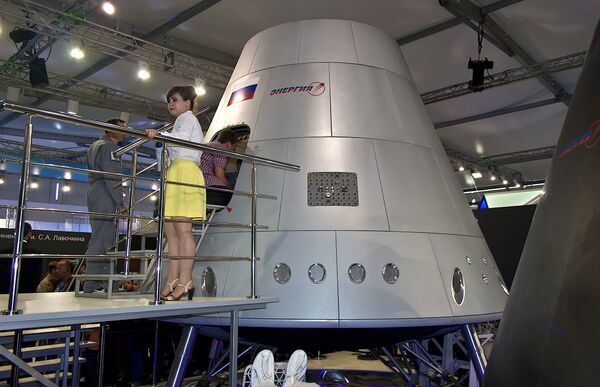
"Considering all of the above, and that the Russian ship too is reusable, and has a lower cost of development, SpaceX will be unlikely to approach the flight cost of the Federatsiya. According to insider information from NASA, the Americans will consider it a big success if Musk merely reaches the present Russian pricelist."
"In any case, the developers of Energia's Federatsiya now have a talented and energetic rival, which is well-funded to boot. And if Russia doesn't take this fact into account, it really could lose its leading position in the global space business."
